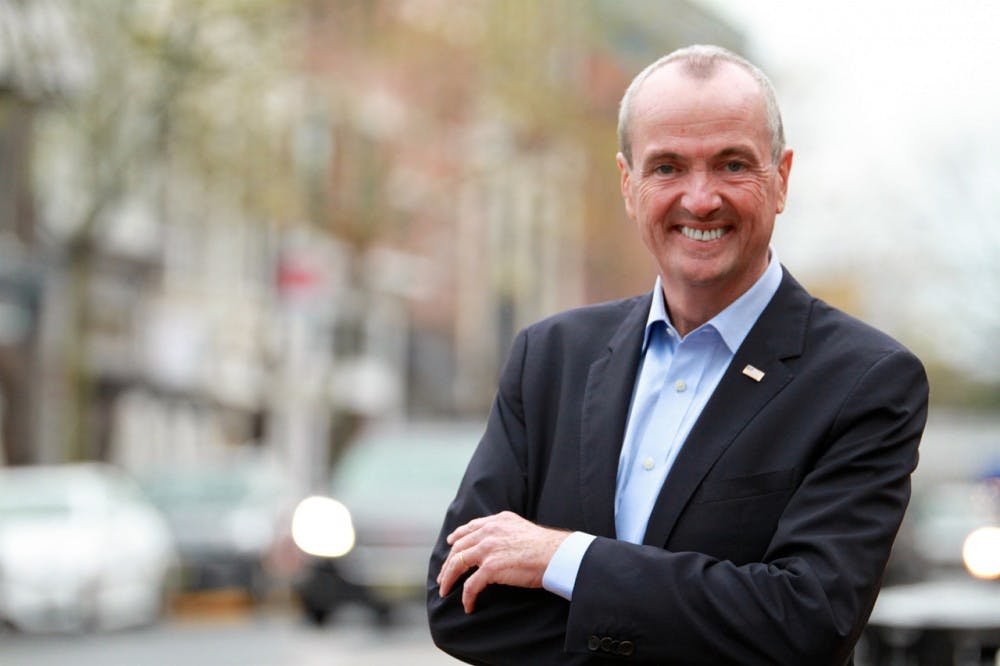New Jersey residents must “stay at home,” with some exceptions beginning at 9 p.m. tonight, according to Executive Order No. 107, which Gov. Phil Murphy signed into effect on Saturday, March 21. Violating the order could result in fines or imprisonment.
In an announcement delivered at 1:21 p.m., Murphy discussed the executive order, which aims to halt the spread of COVID-19. The order bans all gatherings — including weddings and funerals — and directs all non-essential retail businesses to “indefinitely close their physical stores to the public effective 9 p.m..”
“Only businesses critical to our response may remain open,” he said. That list includes “places like grocery stores and food banks, pharmacies, medical supply stores, gas stations, banks, pet supply stores, restaurants and bars providing take-out and delivery only, among other limited expectations.”
A complete list of businesses allowed to remain open is available at covid19.nj.gov.
Murphy also stated that residents can “still take a walk outside or get take-out from the local restaurant [they] want to support.” Otherwise, he said, the state needs residents to “stay at home.”
Executive Order No. 107 mandates that all residents “shall remain home or at their place of residence” unless partaking in nine specified activities.
Residents are still permitted to obtain goods or services from essential retail businesses, obtain takeout food from dining establishments, engage in outdoor activities with close personal contacts, and leave their homes due to reasonable fears for their health and safety.
They can also leave their homes for educational, religious, or political reasons, to report to a job, to seek medical attention or assistance from law enforcement, or to visit specified family members or “individuals with whom the resident has a close personal relationship.”

Additionally, as opposed to the previous CDC-guided policy of limiting gatherings of more than 50 individuals, the order bans “gatherings of individuals” at large. The State Director of Emergency Management will retain the discretion to make clarifications on and issue orders related to this provision, according to the order.
The order states that penalties for violation may be imposed under the “Violations as disorderly conduct; penalty; prosecution” and “Aiding or abetting violation” appendices of the New Jersey Statute. These statutes imply that violating the Executive Order will deem a resident a “disorderly person” and subject them to “imprisonment for a term not to exceed 6 months,” “a fine not to exceed $1,000,” or both.
Murphy also signed a separate order — Executive Order No. 108 — which “invalidates any county or municipal restriction that in any way will or might conflict with any of the provisions” of the stay-at-home order.
“This is no time for business as usual,” Murphy said in his announcement. ”This is a time for all of us to come together to flatten the curve and slow, and eventually halt, the spread of coronavirus.”

The University expected an announcement of this sort to come over the weekend, according to a campus alert sent to all University undergraduates at 5:33 p.m. on Friday, March 20. This alert stated that all University personnel slated to be on campus should “assume that their presence is still required,” and that any news on statewide guidelines would be shared with them and with students still on campus “as soon as [they] have more details.”
In a statement to The Daily Princetonian, University Spokesperson Ben Chang wrote that University will provide information on how the order will impact operations later in the day.
“Princeton University’s remote teaching and campus support operations will continue,” Chang noted. “We are evaluating specific exceptions for higher education and critical services and will provide more information later today.
As of 1 p.m. on Saturday, there were 1,327 positive COVID-19 test results in New Jersey and 30 in Mercer County, which includes the University. Sixteen people in N.J. have died from COVID-19, according to the New Jersey Department of Health.
In the United States as a whole, there have been 22,776 confirmed cases and 282 fatalities.
New Jersey is not the first state to implement a stay-at-home order.
California Gov. Gavin Newsom announced on Thursday an executive order directing all individuals who reside in the state to stay home, except when obtaining necessities. On Friday, three more states issued similar policies.
Illinois Gov. J. B. Pritzker issued a stay-at-home order for residents of Illinois on Friday, which also allowed residents to leave their homes only for essential purposes, such as food and healthcare.
New York Gov. Andrew Cuomo announced in a press briefing on Friday morning that all non-essential workers in the state of New York would be ordered to remain in their homes, and Connecticut Gov. Ned Lamont announced a similar policy effective Monday at 8 p.m.
In the states that have implemented stay-at-home policies thus far, exceptions for individuals traveling to or working in “essential” spaces — such as grocery stories and hospitals — have been put into place.








